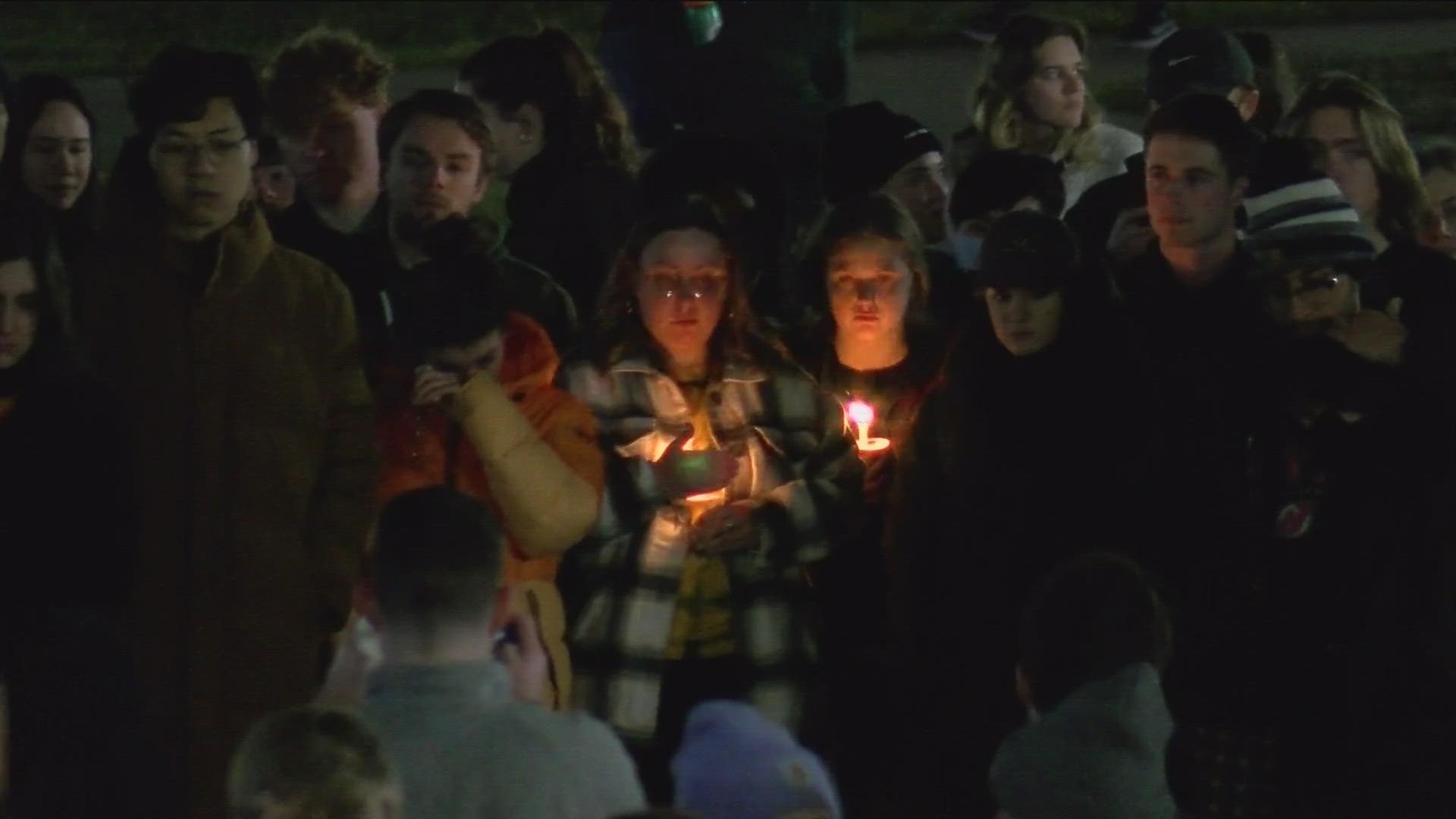ANN ARBOR, Mich. — The mass shooting at Michigan State University on Monday was the 71st of 2023 in the U.S., meaning the country has seen more mass shootings than days since the new year.
Students at the University of Michigan, an hour southeast of East Lansing, stood in solidarity with MSU Wednesday by honoring the three victims with a vigil.
Dr. Christie Jenkins, a psychologist and the CEO of the Family Child Abuse Prevention Center, said mass shootings can cause a ripple effect of pain for everyone -- including those who haven't experienced one -- that should not go ignored.
"Everybody has the right to be sad," Jenkins said. "Everybody has the right to be angry because often these happen at schools and colleges."
She said everyone, especially people in northwest Ohio and southeast Michigan, should allow themselves time to process yet another mass shooting.
"We entrust our children out into the universe and expect them to come back to us in one piece," Jenkins said. "Often that doesn't happen."
During the vigil on Wednesday, UM students Andrea Marquez and Natasha Zake, who are pursuing master's degrees in education with a concentration in equity, justice and social transformation students, said the nation is suffering from collective post-traumatic stress disorder right now.
Marquez said a mass shooting can happen anywhere, "which is, for me, a lot scarier to think about."
Zake described a friend's experience jumping at loud noise during a recent class: "One of my friends, they were in a big lecture hall. Something banged, like a water bottle fell, and everyone in that moment jumped. It's like a collective traumatic response to just events that occurred."
Marquez and Zake said responses to every mass shooting are just more tears, not action to prevent further violence. Zake said each mass shooting shows just how little the U.S. government cares about the safety of its citizens.
"Not only are we grieving the loss of people; we're grieving the loss of our security out in the universe," Jenkins said.
The methods to cope with the aftermath and trauma of a mass shooting look different for each individual. These methods can include therapy, attending a vigil, or parents going over their own active shooter safety plan with their kids, Jenkins said.

